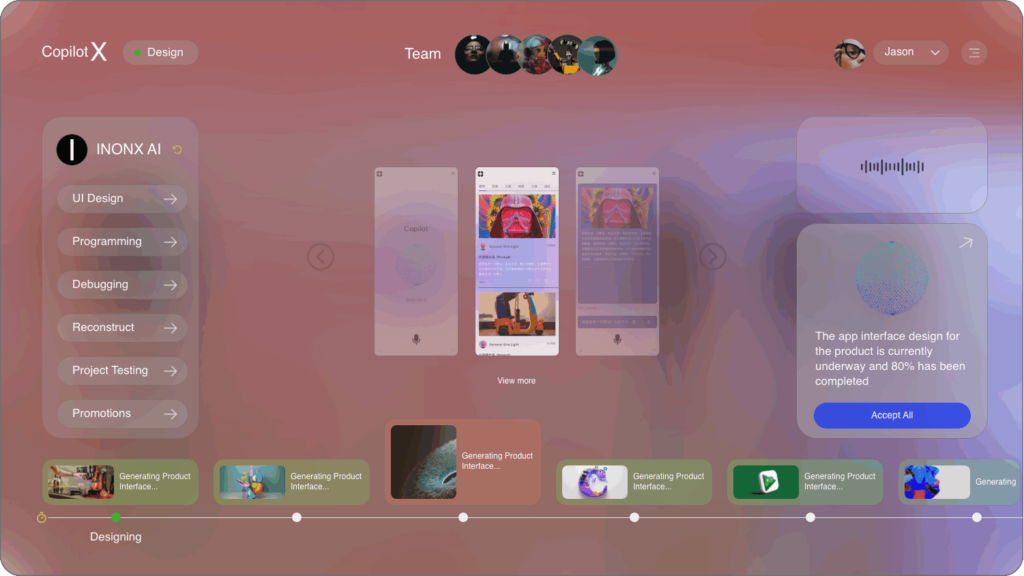In recent news, the field of Artificial Intelligence is witnessing a remarkable evolution with advancements in Emotional AI, chatbot robotics, and data storytelling. Companies and researchers are focusing on how machines can understand and respond to human emotions, creating a more engaging and responsive interaction. As AI technologies become more integrated into everyday life, the importance of these developments continues to grow.
Emotional AI, also known as affective computing, refers to the capability of machines to recognize, interpret, and simulate human emotions. This branch of AI uses facial recognition, voice intonation, and other biometric indicators to assess emotional states. According to a report by MarketsandMarkets, the global Emotional AI market is projected to reach $84 billion by 2029, driven by the increasing demand for intelligent and adaptive customer service applications.
.
In the domain of chatbot robotics, the integration of Emotional AI is creating a new breed of virtual assistants that can empathize with users. Companies like Microsoft and Google are racing to develop chatbots that go beyond transactional interactions and can engage in meaningful conversations. For instance, the new GPT-4 model from OpenAI has been fine-tuned to better recognize emotional cues in users’ texts, allowing it to respond in a way that feels more personalized and understanding.
.
One noteworthy example comes from a startup called Woebot Health, which leverages Emotional AI in their mental health chatbot. Woebot acts as a companion for individuals dealing with anxiety and depression. It employs natural language processing (NLP) to interpret the user’s emotional state and provides tailored responses and resources. Early studies have shown that users report improved mood and decreased anxiety after interacting with Woebot, highlighting the potential of Emotionally intelligent chatbots in mental health support.
.
Moreover, Emotional AI is not limited to virtual assistants; it has applications across various industries. For example, organizations in the retail sector are using this technology to enhance customer experiences. By analyzing customer sentiment through social media interactions and purchase histories, retail brands can tailor their marketing strategies and product recommendations. A recent study published in the Journal of Marketing Research emphasizes that brands that leverage Emotional AI to understand consumer sentiment can see a significant increase in customer loyalty and sales.
.
In conjunction with Emotional AI, data storytelling is emerging as a vital element in the way AI interprets and presents data insights. Data storytelling refers to the practice of using storytelling techniques to convey meaningful data insights clearly and engagingly. When integrated with AI, data storytelling can help organizations turn complex data into actionable insights that drive decision-making.
.
For instance, companies like Tableau and Power BI are incorporating AI-driven analytics that enables users to visualize data driven by emotional context. Imagine a sales report that not only highlights the numbers but also illustrates customer sentiments associated with different products or services. This fusion of Emotional AI and data storytelling empowers businesses to make data-informed decisions that resonate with their customers’ feelings and needs.
.
Despite the promising developments in Emotional AI and data storytelling, ethical considerations pose a challenge. As machines gain the ability to understand human emotions, questions arise about privacy, consent, and the implications of manipulating emotional responses. Experts urge for the establishment of guidelines and ethical frameworks to guide the development of these technologies, ensuring they are used responsibly and transparently.
.
The challenges of integrating Emotional AI into chatbot robotics and data storytelling are not insignificant. Developers must be meticulous in training algorithms to recognize emotions accurately while avoiding biases that could lead to misinterpretations. Additionally, the capacity to simulate emotional engagement poses ethical dilemmas regarding user manipulation and the authenticity of AI interactions.
.
As Emotional AI continues to advance, it will likely reshape various sectors, including education, healthcare, and entertainment. Educational platforms are exploring AI to create emotionally adaptive learning environments, while healthcare applications are focusing on early emotional state detection to enhance patient outcomes. In the entertainment industry, emotionally aware AI can help in the production of personalized content that resonates with viewers on a deeper level.
.
Additionally, companies are beginning to invest significantly in research and development focused on Emotional AI. Notable tech giants such as IBM and Facebook are conducting studies to improve their AI models’ emotional understanding capabilities. The growing visibility of Emotional AI in corporate strategies signifies its critical role in future AI developments.
.
As we progress further into 2024, consumers can expect to interact more frequently with emotionally aware technologies. From customer service interactions to personalized shopping experiences and mental health support, Emotional AI is set to enrich human-computer interactions. The fusion of AI with Emotional Intelligence allows for innovative solutions that can significantly enhance user experiences.
.
Ultimately, the landscape of Artificial Intelligence is rapidly transforming, largely driven by the quest for machines to understand and respond to human emotions. With the advancements in Emotional AI, chatbot robotics, and data storytelling, these technologies are not only changing how we interact with machines but also reshaping our daily lives.
Sources:
– MarketsandMarkets. “Emotional AI Market by Technology, Application, and Region – Global Forecast to 2029.”
– Journal of Marketing Research. “The Impact of Emotional AI on Consumer Sentiment.”
– Woebot Health. “Understanding the Role of AI in Mental Health Support.”
– Tableau. “The Importance of Data Storytelling in the Age of AI.”
– OpenAI. “New Developments in GPT-4: Understanding User Emotions.”


























